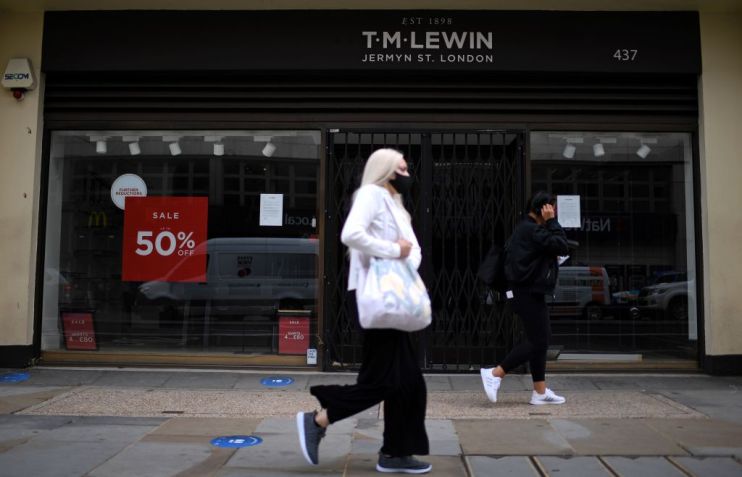UK unemployment rate could hit 15 per cent with second Covid wave, says OECD

The UK unemployment rate could soar to 15 per cent if there is a second wave of coronavirus infections, the OECD has said.
Even without a second wave, the global economic organisation reckons unemployment could hit 11.7 per cent, a level not seen since the 1980s.
It comes as the UK gradually reopens its economies after lengthy coronavirus lockdowns. As it does so, the government plans to gradually wind down its support for the economy.
The OECD today added to fears that the removal of support will lead to a surge in unemployment when it published a report into jobs markets around the world.
By the end of the year, the UK unemployment rate will have jumped to 11.7 per cent from the current level of 3.9 per cent, it said.
The labour market will take time to recover, the report predicted, with unemployment only dropping to 7.2 per cent in 2021.
However, the OECD said that a second wave of infections and the subsequent lockdown could send unemployment soaring to 14.8 per cent as millions lose their jobs. That would be well above anything seen in recent memory.
Low-paid and young hit hard by jobs crisis
The report said the slump in the labour market was hitting certain groups harder than others, notably the self-employed, temporary and low-paid workers, young people, and women.
The OECD is an organisation that promotes economic cooperation among 37 of the world’s most important economies.
It cautioned that the crisis could worsen the UK’s current labour inequalities, with middle-skilled jobs drying up at a rapid pace.
It suggested a range of measures, particularly focused at helping the most vulnerable groups.
“Vulnerable workers are bearing the brunt of the crisis,” the OECD said. “Low-paid workers have been key to ensure the continuation of essential services during lockdowns, often at a substantial risk of exposing themselves to the virus while working. They have also suffered greater job or income losses.”
The report said there should be strong sick pay entitlements, targeted job retention schemes, a focus on keeping young people connected to the labour market, and training for jobseekers.
Drop in hours worked far worse than 2008
The OECD found that the impact of the coronavirus crisis on employment in the world’s richest countries has been roughly ten times worse than during the first months of the 2008 financial crisis, the OECD has said.
It said that, when the reduction in hours worked by those still in jobs is taken into account, total hours worked slumped by 12.2 per cent in the initial three months of the coronavirus crisis compared to 1.2 per cent in 2008.
“This reflects the special nature of the Covid-19 crisis with many countries having put entire sectors of their economy ‘on hold’ to contain the spread of the virus,” the OECD report said.
The organisation also laid out two scenarios for unemployment among OECD countries.
Assuming there is no second wave of infections, unemployment is set to increase to 9.4 per cent on average across the OECD by the end of 2020. That is almost double the 5.3 per cent level of the end of 2019.
Yet if a second surge of infections strikes, the unemployment rate would jump even further to 12.6 per cent, the OECD said.
The organisation added that labour markets will only heal gradually. “The unemployment rate is set to remain at or above the peak level observed during the global financial crisis,” it said.